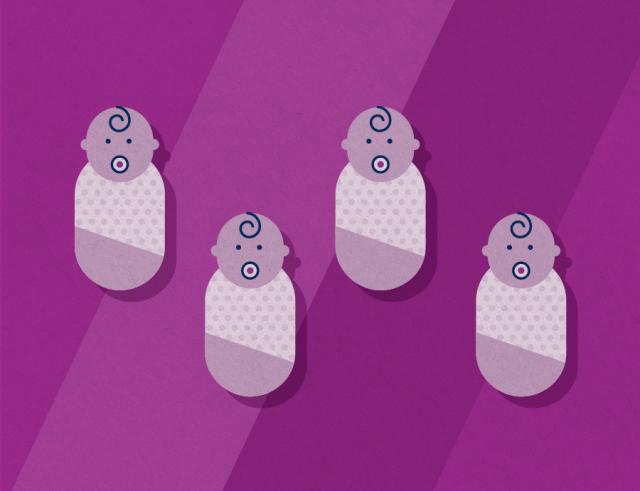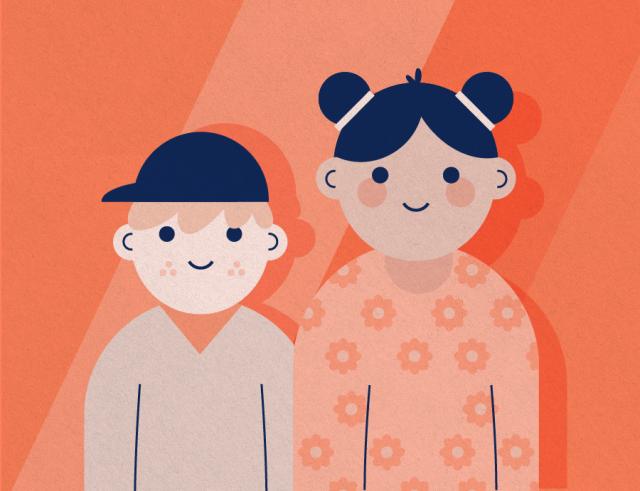Learn how the right vaccines at the right time provide the best protection.
The Centers for Diseases Control and Prevention (CDC) recommends that children get certain vaccines at certain ages. For example, the vaccines a baby gets are different from the vaccines an 11-year-old gets. The recommended vaccine schedule for children is based on how kids’ immune systems respond to vaccines at different ages, as well as how likely kids are to be exposed to specific diseases as they grow.source: 1
Reasons to follow a vaccination schedule
The recommended vaccination schedule uses the best timing to help vaccines safely train your child’s body to protect itself before they are exposed to dangerous diseases.
Who sets the vaccination schedule?
The Advisory Committee on Immunization Practices (ACIP) decides when babies and children should be vaccinated. This committee is made up of expert medical and public health professionals who meet at least three times a year to discuss vaccine recommendations.source: 2
CDC Vaccine Schedule Guidance

Birth through 6 years old
Visit cdc.gov to find out more about the CDC-recommended vaccine schedule for children from birth through 6 years old.

7 to 18 years old
Visit cdc.gov to find out more about the CDC-recommended vaccine schedule for children from ages 7 through 18 years old.

What diseases do childhood vaccines protect against?
Vaccines help us protect our children from diseases that once killed or disabled many people in the past, like polio or Hib disease.source: 3,source: 4,source: 5 Vaccines can also prevent or lessen the severity of dozens of diseases. For example, whooping cough is especially deadly for newborn babies. Diphtheria used to be a common cause of illness and death for kids in the United States.source: 4 And millions of Americans, including teens, get HPV every year, which can lead to cancer.source: 6
Quiz: How well do you know the risks?
Question 1 of 5: How many childhood deaths have routine vaccines prevented?
Correct
Very good!
Incorrect
No, vaccines have saved many more children!
Vaccines are expected to prevent more than 1 million deaths among children in the United States who were born between 1994 and 2023. That’s more than the entire population of Denver, Colorado.
Question 2 of 5: What are the risks of serious side effects happening after vaccination?
Correct
Yes! Generally, only 1–2 vaccine doses in 1 million will result in a severe allergic reaction.
Incorrect
No, the risk is much, much smaller. Generally, only 1–2 vaccine doses in 1 million will result in a severe allergic reaction.
To put that in perspective, you have a 1 in 15,300 chance of being struck by lightning in your lifetime and a 1 in 46,744 chance of dying from a hornet, wasp, or bee sting—both much more likely than having a severe allergic reaction from a vaccine.
It’s important to understand the true risk of something to make an informed decision.
Question 3 of 5: Why do we still need to vaccinate for whooping cough?
Correct
Yes! All the answers are correct. Whooping cough can be very serious for babies.
Incorrect
Actually, all the answers are correct. Whooping cough can be very serious for babies.
Thanks to most kids getting whooping cough vaccines, cases of the disease have decreased more than 75%. And getting vaccinated while pregnant passes protection to the baby. This helps protect the baby before they’re old enough to get their own vaccine.
Question 4 of 5: What diseases have vaccines wiped from the face of the earth?
Correct
Yes! Before a vaccine was used to eradicate smallpox, 3 out of 10 people who had it died.
Incorrect
Good try, but only smallpox has been wiped from the face of the earth. Before a vaccine was used to eradicate smallpox, 3 out of 10 people who had it died.
But we are also very close to eradicating polio. Polio paralyzed almost 21,000 people in the U.S. in 1952 alone. Polio is rare in the United States, but it still exists in a few countries in Asia and Africa. Remember, we still need to vaccinate until polio is gone everywhere, because viruses, just like people, travel.
Question 5 of 5: If one person has measles, how contagious is it in people who are not immune?
Correct
Correct! Measles is one of the most contagious diseases in the world. If 1 person has it, 9 out of 10 people close to that person will also get measles if they aren't protected.
Incorrect
No, measles is one of the most contagious diseases in the world. If 1 person has it, 9 out of 10 people close to that person will also get measles if they aren't protected.
Measles can live in the air for up to 2 hours after an infected person leaves an area. It can be a very serious disease:
- 1 in 5 unvaccinated people who get measles will be hospitalized
- 1 in 20 unvaccinated children who get measles will get pneumonia
- Unvaccinated pregnant women who get measles may have a premature or low birth weight baby
Thanks for participating.
Want to brush up on your knowledge?
Browse this site to learn more.
You scored

Share the facts
Spreading the truth saves lives, so use our resources to help parents understand how vaccines work, why they’re safe, and how they help protect kids.
Vaccine safety
Vaccines go through extensive testing prior to being approved and rigorous monitoring after approval to ensure they are safe for your child.source: 7,source: 8,source: 9
Vaccine-preventable diseases
Routine childhood vaccines help prevent the spread of illnesses that once killed or harmed many infants, children, and adults.source: 3,source: 4,source: 5
Vaccine science
The science behind vaccines helps us understand how they work and why they are effective.
Sources
- CDC: Reasons to Follow CDC’s Recommended Immunization Schedule
- CDC: Who Sets the Immunization Schedule?
- HHS: Five Important Reasons to Vaccinate Your Child
- American Academy of Pediatrics: 14 Diseases You Almost Forgot About Thanks to Vaccines
- FDA: Vaccines Protect Children From Harmful Infectious Diseases
- CDC: HPV Vaccination
- CDC: How Vaccines are Developed and Approved for Use
- FDA: Vaccine Facts: Why You and your Family Need Vaccines
- FDA: Vaccine Development – 101


